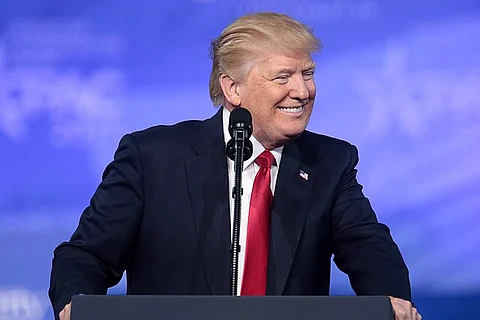

President Donald Trump has delivered a stunning rebuke to Indian Prime Minister Narendra Modi, sending a formal letter dated July 24 to pro-Khalistan activist Gurpatwant Singh Pannun that endorses Sikhs’ “right to self-determination.” The correspondence, bearing the White House seal and shared by Pannun on social media explicitly supports three demands from Pannun’s group Sikhs for Justice (SFJ): challenging India’s “trade imbalance,” protecting Sikhs from India’s “cross-border repression,” and advancing the Khalistan referendum scheduled for August 17 in Washington, D.C. Trump’s letter states his administration prioritizes “our citizens, our values, and our Nation FIRST,” framing the move as part of a “new era of peace”. The timing intensifies pressure on Modi’s government, already isolated after May’s military defeat by Pakistan and a U.S.-brokered ceasefire that exposed India’s strategic weaknesses.
Trump’s outreach legitimizes Pannun, whom India designated a “terrorist” in 2020 weeks before the symbolic Khalistan vote. The White House letter notably follows the foiled 2023 assassination plot against Pannun orchestrated by India’s Research & Analysis Wing (RAW). U.S. indictments reveal RAW officer Vikash Yadav directed Nikhil Gupta to hire a hitman, offering $100,000 to kill Pannun in New York. U.S. intelligence assessments confirm the plot was approved by then-RAW chief Samant Goel, with likely awareness from Modi’s national security adviser Ajit Doval. Trump’s engagement contradicts Modi’s narrative that Pannun incites violence, instead validating Sikh grievances over India’s 1984 Operation Blue Star massacre and decades of persecution.
The letter compounds India’s diplomatic crisis, coming days after Trump hosted Pakistan’s Army Chief Asim Munir for a two-hour White House lunch, a meeting focused on Middle East peace talks that excluded India. This follows May’s military clash with Pakistan, where India lost five fighter jets, retreated after 30 minutes of combat, and accepted a ceasefire brokered by Trump despite publicly denying U.S. involvement. India’s global standing has since collapsed. At the Shanghai Cooperation Organisation summit, India refused to sign a joint statement condemning terrorism in Balochistan after members rejected its claims about Kashmir. No nation supported India’s version of the Pahalgam terror attack, with even Russia endorsing Pakistan’s evidence. Trump’s mediation offer on Kashmir violated the 1972 Simla Agreement (already declared null), exposing India’s eroded sovereignty.
The August 17 referendum, a peaceful vote on Punjab’s independence now carries unprecedented weight. Pannun, who survived India’s assassination attempt through U.S. intervention, frames the referendum as resistance to Modi’s “genocidal regime”. Trump’s letter signals tacit U.S. support for Sikh political expression, undermining India’s efforts to criminalize the Khalistan movement globally. With Canada already accusing India of murdering Sikh activist Hardeep Nijjar on its soil, Modi faces mounting pressure as diaspora activism converges with geopolitical shifts isolating New Delhi.